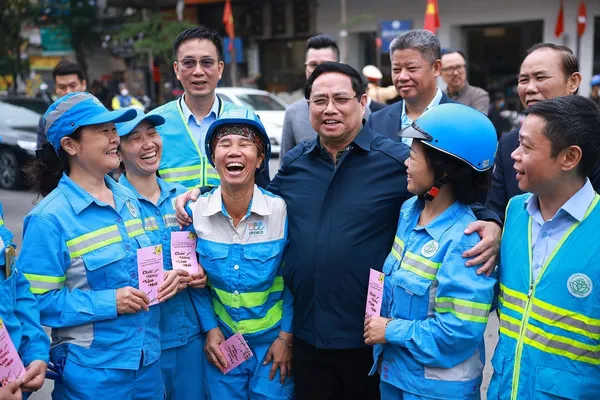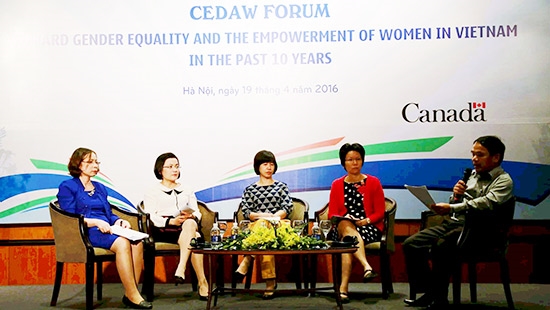 Society
Society

The empowerment of women and girls in Việt Nam has reached significant achievements, said Hoàng Thị Thu Huyền, deputy director of the Department of Gender Equality under the Ministry of Labour, Invalids and Social Affairs.
 |
| A forum discussing 10 years of the project, “Regional programme on improving women’s human rights in Southeast Asia” (CEDAW SEAP), was held in Hà Nội yesterday.— Photo daidoanket.vn |
HÀ NỘI — The empowerment of women and girls in Việt Nam has reached significant achievements, said Hoàng Thị Thu Huyền, deputy director of the Department of Gender Equality under the Ministry of Labour, Invalids and Social Affairs.
A forum discussing 10 years of the project, “Regional programme on improving women’s human rights in Southeast Asia” (CEDAW SEAP), was held in Hà Nội yesterday.
Huyền said that Việt Nam had made strong improvements in laws and legislation on gender equality and the human rights of women, including the revised Constitution in 2013, the Law on Gender Equality and the Law on Domestic Violence.
As much as 53 per cent of professional and technical workers are female. The proportion of women who were literate aged between 15 and 49 increased from 84.4 per cent in 1989 to 96.4 per cent in 2011.
The average life expectancy in 2015 was 73.2 (for men 70.6, for women 76.0). In 2005 the average life expectancy was 71 years. Mortality rates have fallen from 68/100,000 live births in 2010 to 59/100,000 in 2014.
But women are still faced with difficulties and limitations in benefiting from their human rights, according to Huyền.
Violence against women and girls and trafficking in women were reported. Up to June last year, there had been 13,268 cases of domestic violence identified with 13,752 victims. During 2011-15, as many as 2,173 victims of trafficking were found and helped to integrate back into the community.
In a discussion about gender gaps in the country, on-going problems such as persistent patriarchal attitudes and deep-rooted stereotypes, and the lack of sufficient information and data on all forms of violence against women were raised.
Participants agreed that gender equality was essential in giving women a voice, in channeling collective action and advocacy, and in demanding gender-responsive action.
The government and different stakeholders remain committed to working together to make gender equality a reality.
Shoko Ishikawa, Country Representative of the United Nations Entity for Gender Equality and the Empowerment of Women (UN Women) said that the Sustainable Development Goals, adopted by the UN member states last September provided the country with an unprecedented opportunity for advancing gender equality.
“Never before have we seen such strong global consensus at the highest level that gender equality is both an enabler and a precondition for sustainable development,” she said.
Nguyễn Trọng Đàm, deputy minister of Labour, Invalids and Social Affairs, said that Việt Nam was committed to promoting gender equality and women’s human rights.
Over the next period, the country would review gender equality provisions in existing laws and policies, and reinforce gender mainstreaming into legal documents and policies. — VNS




